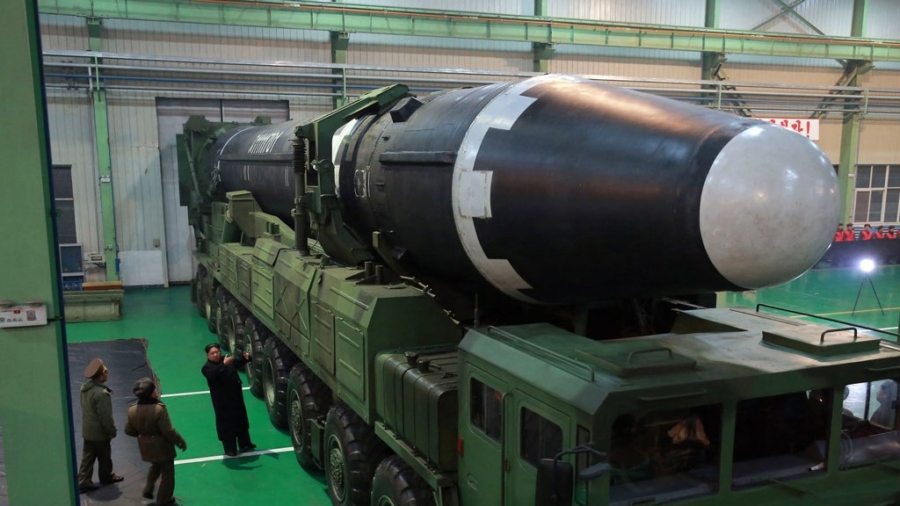Japan’s Asahi newspaper reported on Wednesday, citing an unidentified person connected to South Korean intelligence, that North Korea was conducting biological experiments to test the possibility of loading anthrax-laden warheads on its intercontinental ballistic missiles.
The Asahi report said the U.S. government was aware of the tests, which were meant to ascertain whether the anthrax bacteria could survive the high temperatures that occur during warheads’ re-entry from space.
Reuters was unable to verify the report independently.
In a statement released by state media, North Korea‘s Ministry of Foreign Affairs called reports it was developing biological weapons “nonsense” designed to provoke a nuclear war.


The United States has given China a draft resolution for tougher U.N. sanctions on North Korea and is hoping for a quick vote on it by the U.N. Security Council, a Western diplomat said on Tuesday, however, Beijing has yet to sign on.
Among the steps it wants is a tightening of restrictions on North Korea‘s supply of refined petroleum, which is capped by previous U.N. sanctions at 2 million barrels a year.
The United States has also called on the Security Council to blacklist 10 ships for circumventing sanctions on North Korea.
The documents said vessels had been conducting ship-to-ship transfers of refined petroleum products to North Korean vessels or transporting North Korean coal in violation of existing U.N. sanctions.

